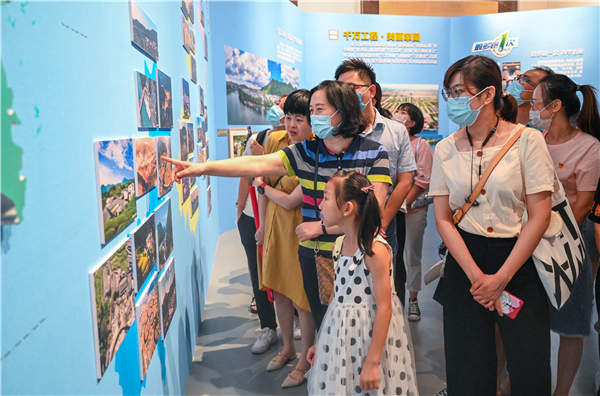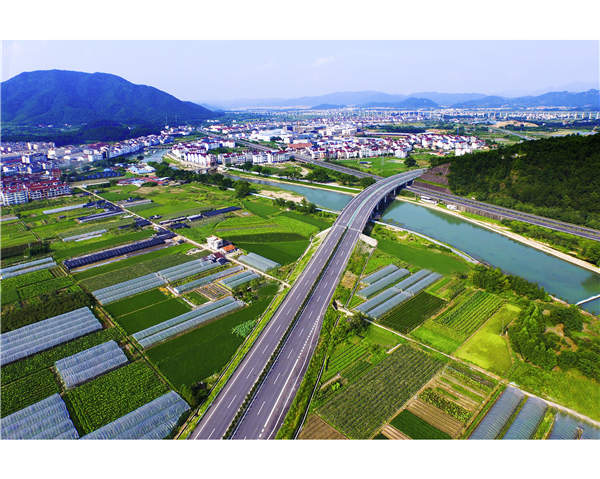Natural prosperity


A young man from the Guangxi Zhuang autonomous region's Guilin, who has been living in Hangzhou for six years, captured the sounds of nature and brought them to the exhibition scene: the birdsong in the morning, the murmur of a flowing river, nightingales serenading in the tea garden, the wind in bamboo and rain dropping from old trees.
Behind the corner, some beautiful sights have been reproduced through artificial landscapes in the exhibition hall to reflect the charm of Zhejiang, including the Broken Bridge lying on West Lake and Baizhangji Waterfall near Wenzhou.
"I feel like I walked into a cool and pleasing park," says an elderly visitor.
"People who live in big cities are sometimes too busy to feel nature, but now nature is brought to the exhibition hall for them," a young man says.
As the exhibition shows, with the pursuit of harmony between humans and nature, and the economy and society in mind, the Earth will only show kindness back.

Other species' living space also grew broader and better. At the end of the 1950s, environmental degradation and habitat destruction caused the local extinction of the crested ibis in Zhejiang. In 2008, the Deqing county's forestry bureau introduced five pairs of crested ibis from Shaanxi province. It started the project of artificial breeding and the introduction of wild crested ibises. By 2019, 406 of the birds lived in Deqing.
Zhu Guoxian, head of Zhejiang's publicity department, attended the opening ceremony of the exhibition.
"This exhibition is a concentrated display of the achievements of Zhejiang province from 15 years of unswervingly practicing scientific development," he says. "It's a reiteration of the importance of building an ecological civilization."

































